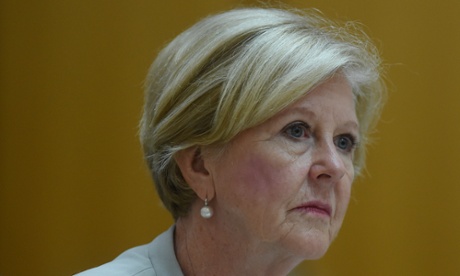Mohammad Hamza Husein says he will lose an eye injured in detention centre unrest and is being kept from specialist care

An asylum seeker who had an eye gouged and lost several teeth during unrest at Manus Island detention centre in February has written to the United Nations in a desperate plea to receive proper medical care.
There are growing concerns from human rights experts about the lengthy delays for medical treatment asylum seekers held in offshore processing centres face, even when suffering from serious conditions.
In the letter sent on Monday, detainee Mohammad Hamza Husein described how he could no longer concentrate or sleep at night because of his pain.
Husein, who is from Iraq, wrote that after he was injured in the protests he was taken to Port Moresby, where a consultant ophthalmologist referred him to a specialist on the Australian mainland because she did not have the equipment needed to assess him.
The specialist said his right eye was irreparable and would need to be removed. “He told me to see him again after 20 days,” Husein wrote. “Before I saw him again I was taken by force and brought back to Manus Island. Right now, I cannot attend any class, cannot sleep at all during [the] day and night and I cannot see anything with my right eye because I lost sight completely.”
Husein wrote that he wants to go back to the specialist to have his treatment completed, nearly nine months after he was first injured. He also suffers from diabetes and relies on painkillers to get by.
He described how he was injured, writing he had been in his room and was not taking part in the protests when Papua New Guinean police and officers from the security firm G4S stormed his room.
“I was taken from under my bed and was beaten severely,” he wrote.
“As a result I lost my sight because they hit [a] big wooden stick on my right eye and… on my mouth and I lost two teeth.”
Prof Gillian Triggs, president of the Australian Human Rights Commission, said delayed medical treatment was a “persistent complaint” among those held in Australia’s offshore processing centres.
“We have to be careful about these allegations until proven true, but there were many incidents we found where the facts stood up to scrutiny,” she said.
“There was one case where a baby had a huge lump under its chin and if that occurred in suburban Australia, that baby would have been rushed to hospital immediately. This baby didn’t get attention for 10 days, and only because a medical officer travelling with me made an issue out of it, as did I.”
The Australian government had an especially high duty of care to those in offshore detention, Triggs said.
“The point we make is when you put people on islands hours away from medical care, you have an even higher duty of care to them than elsewhere because you’ve put them in harm’s way, and that harm almost inevitably happens.”
Hamid Kehazaei, a detainee at Manus island detention centre who died after waiting weeks for medical treatment for a foot infection, was not scheduled to be seen by a doctor until three weeks after his death.
In August, Kehazaei, an Iranian, asked to see a doctor on the offshore processing centre after cutting his foot and experiencing extreme pain.
But he did not immediately get an appointment and weeks later, he was evacuated to a Brisbane hospital suffering from severe septicaemia. On 5 September he was declared brain dead and his life support was switched off.
A schedule of doctor appointments at the detention centre revealed to Guardian Australia shows Kehazaei was to be seen on September 27 at 9.45am, almost two months after first requesting an appointment.
Ben Pynt, director of Human Rights Advocacy, said denying people medical treatment amounted to torture under international humanitarian law.
“We’re seeing hundreds of people whose medical treatment has been delayed or denied,” Pynt said. “Sometimes when we alert the Department of Immigration about such cases they do take action, which suggests they don’t know what’s going on or have been unwilling to find out.” Guardian Australia has contacted the department for comment.
Pynt said asylum seekers needing urgent medical care should immediately be brought to Australia for treatment.
“There is no other option because treatment on Manus is insufficient,” he said. “Most asylum seekers are left waiting days or weeks before they can see a doctor, and on Manus 87 people are on the specialist treatment waiting list. This is just so common.” There were also 150 people on the dental waiting list at Manus, Pynt said.
In another letter sent in early October, an asylum seeker, also detained on Manus Island, wrote he had been waiting 14 months to see a dentist.
“There’s no remedy available for us,” the letter said. “Only Panadol and water. We are waiting for dentist during last year. I have toothache too. I lost [two] teeth.”
In August, the Royal Australasian College of Physicians, the Royal Australian College of General Practitioners and the Australian Medical Association called for the establishment of an independent medical advisory body to audit the treatment of asylum seekers in detention.
A spokeswoman from International Health and Medical Services, contracted by the Australian government to manage health care on offshore processing centres, said a triage system was used to assess patients, the same as would be used for treating patients in a hospital environment.
“There is no impediment to transferees seeking immediate medical attention for any matter from the 24/7 services that are available, either via a medical request form or by an unscheduled visit,” she said.
Do you know more? melissa.davey@theguardian.com
